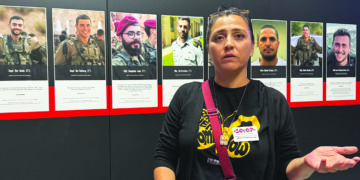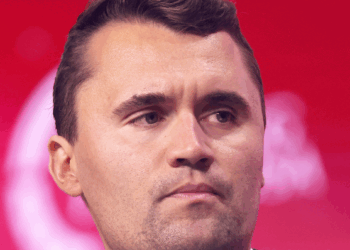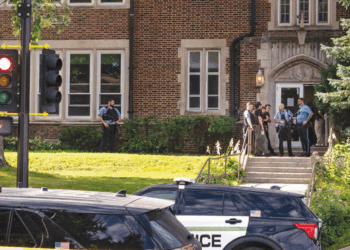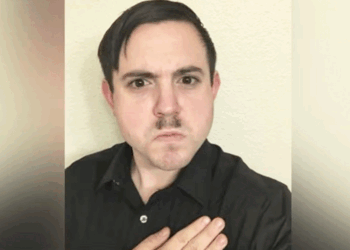The recent revelations about the surveillance of nearly everyone’s electronic communications by the National Security Agency (NSA) have been a source of great embarrassment to United States government officials. Edward Snowden, a 29-year-old contractor with a firm doing the NSA’s business, spilled the beans, then headed for a hotel in Hong Kong.
“I understand that I will be made to suffer for my actions,” Snowden wrote, according to reporters for the Guardian newspaper in London, but “I will be satisfied if the federation of secret law, unequal pardon and irresistible executive powers that rule the world that I love are revealed even for an instant.”
The U.S. government wants to get its hands on Snowden. Some politicians have branded him as a traitor.
“First, the Guardian reported details on a domestic telephone dragnet in which Verizon was forced to give the NSA details about all domestic, and even local, telephone calls,” noted James Bamford, a Reuters columnist who has written extensively about the NSA. “Then the Guardian and the Washington Post revealed another massive NSA surveillance program, called Prism, that required the country’s major Internet companies to secretly pass along data including e-mail, photos, videos, chat services, file transfers, stored data, log-ins and video conferencing.”
In fact, our civil liberties are in the midst of a curdling process since the 9/11 attacks. I’m not surprised about the general thrust of the story about Big Brother sweeping up our social media information and telephone “meta-data.”
Bamford, whose latest book is The Shadow Factory: The Ultra-Secret NSA from 9/11 to the Eavesdropping on America, explains that the NSA “was so flooded with billions of dollars from post-September 11, 2001 budget increases that it went on a building spree and also expanded its eavesdropping capabilities enormously. Secret rooms were built in giant telecom facilities, such as AT&T’s 10-story ‘switch’ in San Francisco. There, mirror copies of incoming data and telephone cables are routed into rooms filled with special hardware and software to filter out e-mail and phone calls for transmission to NSA for analysis.”
In this murky realm, average citizens cannot really understand what is happening behind the curtain. Indeed, many government and elected officials offer us bland assurances that this surveillance regime has foiled terrorist attacks and made us safer. We are told that when the government wants the substance of our e-mails and phone calls, they have to go to the FISA (Foreign Intelligence Surveillance Act) court to get permission. Of course, the FISA court proceedings are secret and it’s really just a matter of rubber-stamping requests for information.
And while the NSA was rummaging through the yottabytes of data vacuumed up, the FBI was questioning Tamerlan Tsarnaev about his jihadist views. Then the Tsarnaev brothers set about committing a heinous act of terrorism, killing and maiming innocent people at the Boston Marathon finish line.
I am suggesting that we need to be vigilant about protecting our civil liberties and not be credulous about the claims of government officials who assert that our safety will be assured by monitoring our private communications and generally invading our privacy.
In my May 2009 editorial titled “Manufacturing crimes,” I expressed doubts about the FBI role in the case of the Newburgh 4, a group of knuckleheads who were led along in a “terrorism” plot by an FBI informant and his handlers. There have been a number of similar cases, where the FBI has danced along the line of entrapment, stringing along a disgruntled individual who likely would not have the wherewithal to execute a real crime without the encouragement and resources of FBI officials.
“We would like to think that our law enforcement agencies are proactive and protective of the Jewish community, and of all groups in the greater society,” I wrote four years ago. “However, in the post-9/11 environment there is a worrisome trend among law enforcement officials to manufacture threats for their own aggrandizement and personal power. In the New York case, we will see how the case plays out in court; but it is conceivable that the four stooges in custody did not represent a serious terrorist threat to the social order. If limited resources are being devoted to gaming the system and manufacturing crimes, then there could be real predators escaping detection.”
The Newburgh group was convicted, and it is hard now to figure out exactly what would constitute an entrapment defense.
It seems that we are all entrapped in a vast security edifice that verges on a police state regime, à la the Stasi in East Germany.
We should watch what happens to Edward Snowden in the days to come, guard our civil rights and question authority. As the famous jurist Louis Brandeis once told a reporter, “the most important office, and the one which all of us can and should fill, is that of private citizen.”
— Mordecai Specktor / editor@ajwnews.com
(American Jewish World, 6.21.13)




















Mordecai,
If you are indeed worried about our privacy, I am surprised that you are not speaking out about the private companies like Facebook. Twitter, Google and Yahoo, and the amount of data collection that they do. Being familiar with the matter, I can assure you that the type and amount of information collected on private citizens by business, and the amount of processing and correlation done on that data far surpasses anything that the government has done so far. For better or worse, government agencies are still governed by some sort and shape of laws, where business enterprises are not covered by any. Furthermore, businesses make this data available on the open market, where the government keeps it largely to itself. And yes, indeed, I do not rule out that some of the collected data has been used to maintain a semblance of security for me and my children.
If you are indeed worried about our civil rights, you would have written about the Child Protection Services, a government agency with virtually unbound powers to destroy families and take children away from their parents, and no responsibility whatsoever to the general public.
If you are not aware what I am talking about, please take a look at the case of Sammy Nikolayev from Sacramento (http://www.news10.net/news/article/247527/2/Baby-Nikolayev-case-prompts-vote-to-audit-CPS). This case has caused a country-wide outcry, and prompted a state-wide audit of California Child Protection Agency practices. The audit did indeed gather bipartisan support.
Minnesota CPS is exactly the same, but because of the “sensitive nature” of their work, the likes of Latzes and other liberal Jewish lawmakers in Minnesota legislature are afraid to even mention them, despite their repeated and frequent abuse of Jewish and Russian-Jewish families.
Of course, it is just as unlikely for someone like you to mention this in your newspaper.